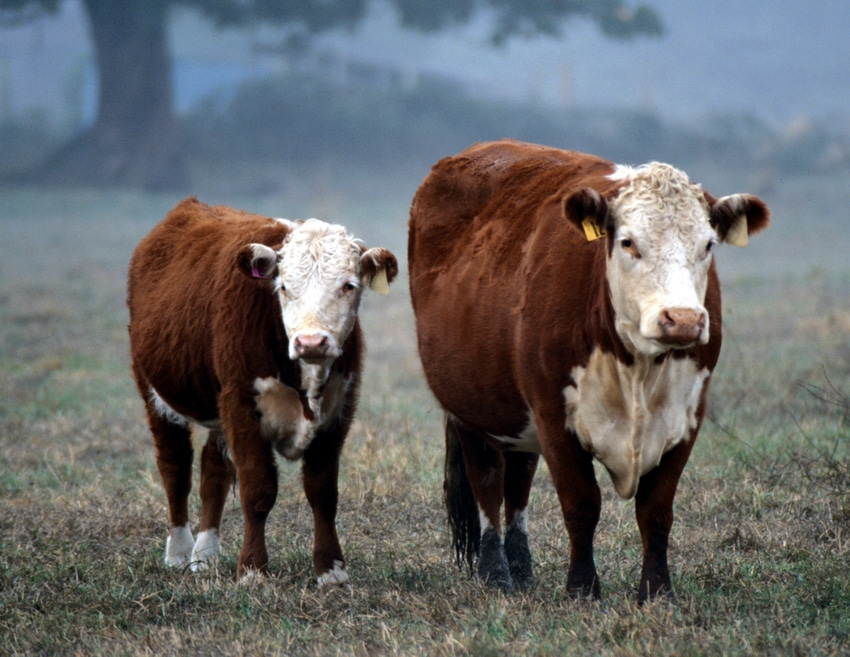Integrating cattle and mushroom production with abundant corn stover could yield year-round farm profitability.
September 13, 2019

Researchers with the North Carolina Agricultural & Technical (A&T) State University College of Agriculture & Environmental Sciences are working on a project meant to integrate mushroom and cattle production.
According to a recent announcement from the university, Drs. Uchenna Anele, Omon Isikhuemhen, Felicia Anike and Obed Quaicoe received a three-year, $500,000 grant from the U.S. Department of Agriculture's National Institute of Food & Agriculture (NIFA) as part of its Agriculture & Food Research Initiative program.
The team is using its grant to explore how the use of a mushroom-based feed supplement might improve how U.S. farmers feed their cattle, the announcement said.
According to North Carolina A&T, for small- to medium-sized cattle farmers, the winter season poses major challenges to sustainability and profitability. The cost of feed during the winter is especially high, so farmers must choose between using their land for crops or livestock production, the research team said.
Corn stover is the dried leaf and stem matter left on the field (or discharged from a harvester) after cobs are picked and shelled. While stover is the most plentiful crop residue after harvest in the U.S., it’s not very appealing as a livestock feed, the researchers said, noting that it contains a lot of lignin.
The research team is looking for an affordable way to fortify corn stover in a way that makes it easier for cattle to eat but could also provide additional economic benefits to cattle farmers.
They have turned to mushrooms, which can grow into extremely nutritious, vitamin-filled edibles by feasting on substances such as sawdust, grain, wood plugs, straw and woodchips, plus liquid for nourishment, North Carolina A&T said.
Isikhuemhen’s previous work in Germany and recent work with Anike at North Carolina A&T have already established that mushrooms will grow on corn stover, and now the researchers will test the concept at small farmer sites to see how the science and economics add up.
There is a possibility that the production of mushrooms and the simultaneous utilization of abundant, low-cost corn stover could improve the financial landscape for farmers while resulting in healthier cattle, according to the announcement.
The team believes that cultivating mushrooms on corn stover will:
• Alleviate financial challenges for farmers by utilizing cheap and plentiful corn stover, especially for winter feeding of cows;
• Break down the lignin in the corn stover, making it appealing and easy to digest for cattle;
• Release nutrients and bioactive compounds into the stover, which makes it more nutritious;
• Improve the gut microbiome in cattle, and
• Produce mushrooms that could be a high-margin, year-round crop for farmers to sell.
North Carolina A&T said this research project is a model for transdisciplinary research as it includes an animal scientist, a mushroom scientist, a biotechnologist, an economist and a group of small cattle and mushroom farmers in North Carolina.
For the study, participating mushroom substrate producers will make and deliver ready-to-fruit substrates to cattle farmers who will “fruit” (produce) and sell the mushrooms on a weekly or biweekly basis.
Then, spent mushroom substrate (left over after fruiting) will be used for feeding trials in cattle. Data such as animal growth parameters, changes in the gut microbiome as health indicators, blood parameters, quantity/value of mushroom yield and changes in farm profitability will be evaluated.
Anele believes the integration of exotic mushroom and cattle production can be of immense advantage in a small farm environment because mushrooms can act as a continuous source of income to farmers (daily or weekly sales) while generating bio-fortified biomass as a cheap source of animal feed, especially during the winter months, when grazing is not possible in many U.S. states.
North Carolina A&T is the nation’s largest historically black university. Classified a “higher research” university by the Carnegie Foundation, it is a land-grant member of the University of North Carolina System.
You May Also Like

.png?width=300&auto=webp&quality=80&disable=upscale)

